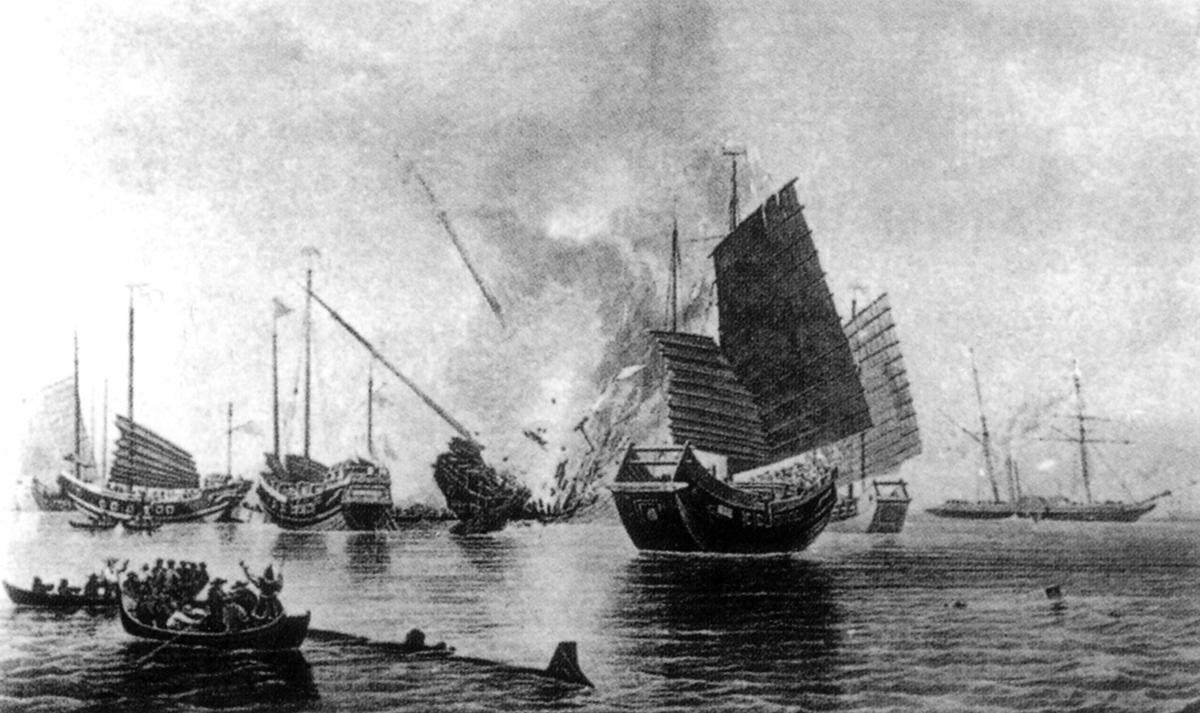More languages
More actions
| First Opium War | |||||||
|---|---|---|---|---|---|---|---|
 | |||||||
| |||||||
| Belligerents | |||||||
| Qing Empire | United Kingdom | ||||||
The First Opium War (Chinese:第一次鸦片战争: Pinyin: dìyīcì yāpiàn zhànzhēng) is the British imperialist war of aggression against China that began in June 1840.
Timeline[edit | edit source]
Background[edit | edit source]
In the nineteenth century, China maintained a trade surplus with Britain, which greatly harmed the interests of British merchants. Britain began to smuggle opium into China for profit. The smuggling of opium cost China a lot of silver and the consumption of opium by a large number of people greatly affected the health of the Chinese people.
In March 1839, Lin Zexu arrived in Guangzhou to destroy opium.
Outbreak[edit | edit source]
In June 1840, 40 British warships with 4,000 soldiers arrived at the Chinese coast and blockaded Chinese ports.
Results[edit | edit source]
On August 29, 1842, the Treaty of Nanjing was signed between China and Britain. It:
- Ceded Hong Kong island.
- Compensated the British for the price of opium, commercial debts, and military expenses totaling twenty-one million silver dollars.
- Opened five ports of commerce: Guangzhou, Fuzhou, Xiamen, Ningbo and Shanghai; allowed British residents to live there and assigned consuls.
- Agreed that British merchants should pay import and export taxes and rates and that the Chinese customs had no right to autonomy.
- Abolished of the thirteen hongs in Canton, allowing British merchants to trade freely in China.
